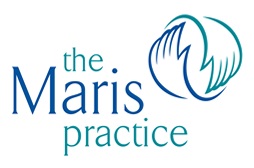The intricate dance of hormones within a woman’s body plays a crucial role in her overall well-being, from mood swings to fertility and beyond. While hormonal fluctuations are a natural part of life, nutrition can profoundly influence their balance, offering women a pathway to optimise their hormonal health naturally.
One of the most critical aspects of supporting hormonal balance through nutrition is maintaining stable blood sugar levels. Consuming complex carbohydrates, fibre-rich foods, and healthy fats can help stabilize blood sugar, preventing insulin spikes and crashes that can disrupt hormone production. Incorporating whole grains, vegetables, nuts, seeds, and proteins into meals can provide a steady supply of energy and support hormonal equilibrium.
Furthermore, certain nutrients play key roles in hormone synthesis and regulation. For instance, omega-3 fatty acids found in fatty fish like salmon and flaxseeds are essential for hormone production and can help alleviate symptoms of menstrual irregularities. Additionally, vitamin D, obtained through sunlight exposure and supplementation, is crucial for hormonal balance and can support reproductive health.
Moreover, phytoestrogens, plant compounds found in foods like soybeans, lentils, and flaxseeds, can mimic estrogen in the body and help alleviate symptoms of hormonal imbalances such as menopausal hot flashes. However, it is essential to consume these foods in moderation and in balance with other nutrients to avoid potential negative effects.
On the flip side, certain dietary choices can disrupt hormonal harmony. Excessive consumption of refined sugars, processed foods, and trans fats can lead to inflammation and insulin resistance, contributing to hormonal imbalances such as polycystic ovary syndrome (PCOS) and estrogen dominance.
Prioritising a balanced and nutrient-dense diet is paramount for supporting women’s hormonal health, and is especially important during times of hormonal changes (such as puberty, child-bearing and menopause). By focusing on whole, unprocessed foods rich in complex carbohydrates, healthy fats, and essential nutrients, women can nurture their bodies and promote hormonal equilibrium. Understanding the profound impact of nutrition on hormonal balance empowers women to take proactive steps towards optimal health and well-being.
The Liver and adrenal glands help in the production and regulation of hormones such as oestrogen and progesterone. As our ovaries start to produce less from the peri-menopause, good liver and adrenal function is vital to ensure we get the smaller amounts that they produce. Chronic stress, medication and poor nutrition all strain these organs and make it harder for our body to produce and absorb any of these essential hormones.
Looking after these organs today, lays the foundation for a healthy and vital tomorrow.
Liver and adrenal health are supported by:
- Healthy Diet: rich in whole foods, including plenty of fruits, vegetables, lean proteins, and healthy fats. Minimal processed foods, sugar, and alcohol, which can stress the liver and disrupt hormone balance.
- Liver-Supportive Foods: such as cruciferous vegetables (broccoli, Brussels sprouts, cabbage), leafy greens, garlic, onions, turmeric, and beets.
- Hydration: plenty of water to support liver function and aid in detoxification processes.
- Limiting Toxins: Minimising exposure to environmental toxins, such as pesticides, pollutants, and chemicals found in certain personal care products and household cleaners.
- Manage Stress: Chronic stress can impact adrenal health and hormone balance. Practice stress-reducing techniques such as mindfulness, meditation, yoga, or deep breathing exercises.
- Adequate Sleep: Ensure you’re getting enough restful sleep each night, as inadequate sleep can contribute to hormonal imbalances and stress on the adrenals.
- Herbal Support: Consider incorporating herbs known for their liver and adrenal support, such as milk thistle, dandelion root, licorice root, and holy basil (tulsi). However, it’s essential to consult with a healthcare professional before adding new herbs or supplements, especially if you have any existing health conditions or are taking medications.
- Regular Exercise: Engage in regular physical activity, which can support overall health and hormone balance.
- Balanced Lifestyle: Strive for a balanced lifestyle that includes regular relaxation, hobbies, and activities you enjoy. Finding a healthy work-life balance can help reduce stress and support hormone equilibrium.
Nutritional therapists are able to work with you to identify how you can alter your diet to support your hormonal stability and minimise symptoms associated with changing hormonal balances and levels. Find out more about how we can help here.

